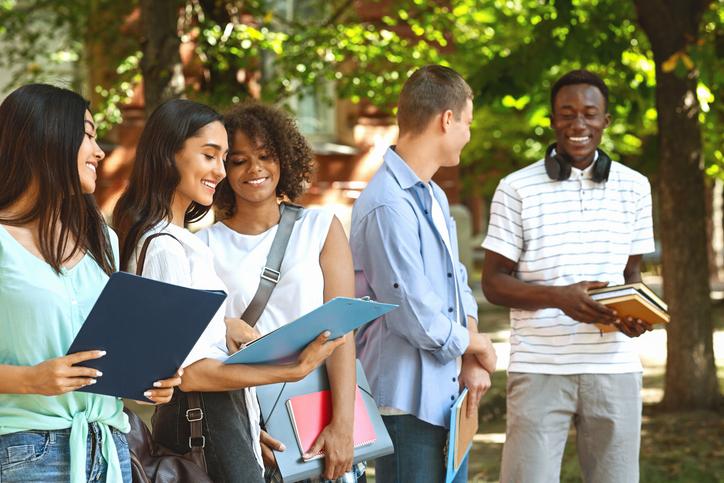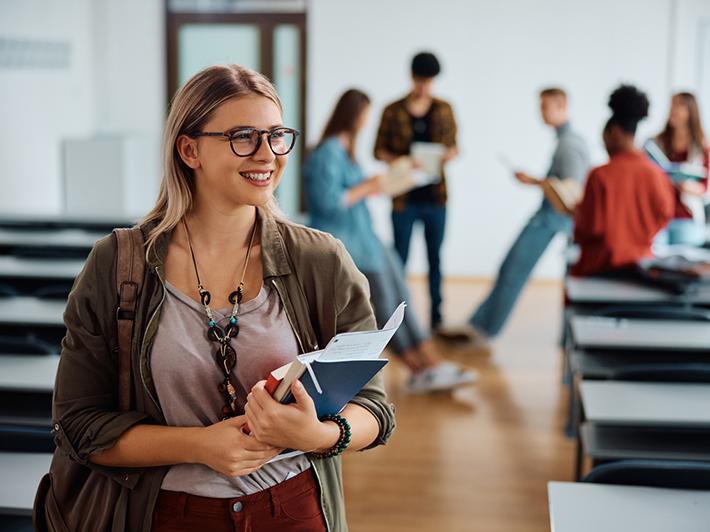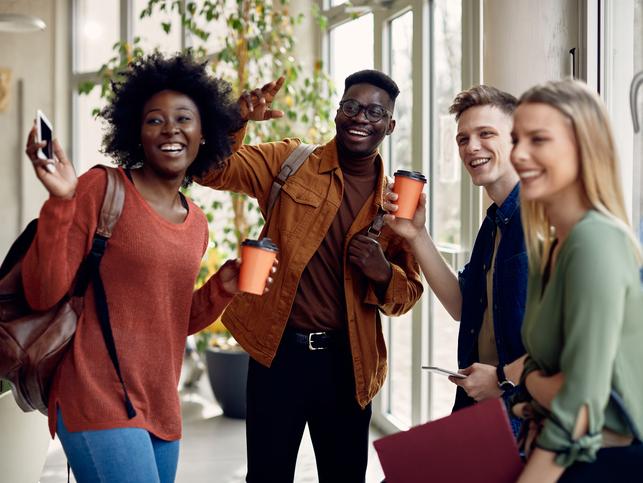Engineering students often begin their university journey with quiet determination and a strong focus on their work, which can sometimes make it harder for them to start making new friends and seek academic advice early on. To address this, we have introduced new initiatives to help our first-year students feel supported from the beginning, and gradually overcome the initial barriers or hesitation they may face in their first year. In particular, we have revamped our required professional and academic development seminar course to include structured activities that prioritise team-building, professional skill development and stronger student-teacher connections.
Starting strong: creating a sense of belonging from day one
The first activity we organise for freshmen is especially important because it helps shape their entire university experience. A positive first impression can ease anxiety, boost confidence and influence how students engage with their peers, their instructors and eventually the wider campus community.
- Common barriers to belonging and how to overcome them
- Not all students want to fit in, but every student wants to matter
- The power of events to build belonging among students
We carefully designed our CSE Orientation Dinner as a relaxed and welcoming event to foster early student-teacher connections and create a stronger sense of belonging. By bringing students and their academic advisers together before classes begin in a casual setting, students know exactly who to approach when they need support, and they feel more comfortable initiating conversations in class, having already met their advisors at the dinner.
To ensure continuity of support, we also require each student to meet their adviser face to face at least once per semester. These regular touchpoints allow advisers to identify issues early – whether academic struggles or personal concerns – and provide timely help.
Listening to students: what they asked for
We organise annual student focus group discussions and liaison committee meetings, engaging older students to gather honest feedback on their learning experience and our programme structure. These sessions are deliberately held in a relaxed lunch gathering format, where students can speak freely over food in an informal setting. Without the pressure of a formal meeting, students are more likely to share candid opinions, voice concerns and offer constructive suggestions.
In our most recent round of discussions, two common concerns clearly emerged. First, students expressed a strong desire for more activities at the beginning of university life to support ice-breaking, team-building and the formation of lasting friendships. Second, beyond their regular courses, they also wanted training in professional skills such as GitHub, LaTeX, video production, HTML/CSS and CV writing. They believed that gaining these skills would better prepare them for future career opportunities and postgraduate study.
Team-based learning through technical training modules
To address these concerns, we redesigned our required seminar course to include a set of team-based training modules, offered each semester. These training modules are built not only to teach technical skills such as GitHub, LaTeX, video production, HTML/CSS and CV writing, but to foster collaboration and confidence. Students are required to complete the modules in teams to strengthen team-working skills and encourage both team-building and new friendships.
We purposefully structure each group with three students because we have found this to be the optimal size for effective collaboration. Pairs are too small for team-building but larger groups can lead to free-riding. With three members, each member takes on a meaningful role and gains experience in communication, cooperation and active participation.
Belonging through the lens: a year-long freshman journey
Another meaningful addition to our seminar course is a year-long video-making project specifically for first-year students. For this project, students work in teams of three throughout their first academic year to produce a short video about university life. The project has two major purposes. First, it helps create a strong sense of belonging because students are encouraged to explore the campus and document their experiences, from daily routines and hidden corners to student stories and personal insights, in a vlog-style format. This gives them a creative outlet to express their early university journey and develop a deeper connection with the campus environment.
Second, the year-long nature of the project provides an invaluable team-building opportunity. By collaborating closely over a longer period, students have more time to get to know each other, build trust and form lasting friendships. This is especially important for new students who are adjusting to a new academic and social environment. This activity has quickly become a cornerstone of the freshman experience, combining reflection, creativity and connection in a single, impactful format.
Making communication open, easy and safe
We also recognise that not every student feels comfortable speaking up in person. To support this need, I maintain a Telegram channel, where students can message anonymously and receive quick responses from both me and their peers. Allowing students to remain anonymous encourages participation, especially for hesitant students who prefer not to share their questions or opinions with their real names.
This extra virtual channel offers several advantages. Students can often get help more quickly from peers who are online and ready to respond. Some student-oriented questions, such as on course logistics or campus life tips to which even I might not have immediate answers, are often better addressed by their peers. Additionally, the channel serves as a virtual space for students to connect and build friendships in a relaxed virtual environment, further strengthening their sense of community.
From my course evaluation, I have received very positive feedback about this virtual channel:
“The professor was very friendly and encouraged us to participate. It was also nice that he created an external route to communicate freely through Telegram.” “Kenneth has an open Telegram discussion group for us to discuss the questions and it is really helpful.”
Ultimately, a “warm welcome” is not a one-off effort. It is about establishing an inclusive environment where students feel heard, supported and meaningfully connected from the very beginning and throughout their university journey. The orientation dinner, one-on-one adviser meetings and virtual communication channel all contribute to fostering a strong sense of belonging from the start. Through the practical training modules in our seminar course, we are not just preparing students for academic success but helping them thrive as confident and connected members of our university community.
Kenneth Wai-Ting Leung is associate professor of engineering education at Hong Kong University of Science & Technology.
If you’d like advice and insight from academics and university staff delivered direct to your inbox each week, sign up for the Campus newsletter.




comment